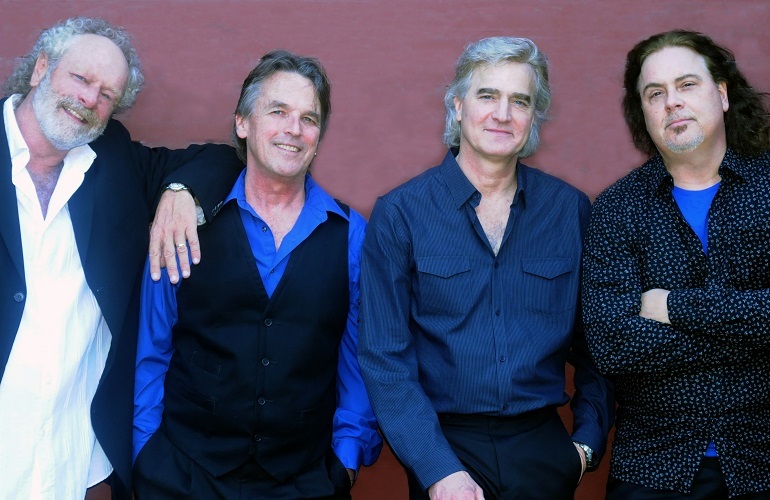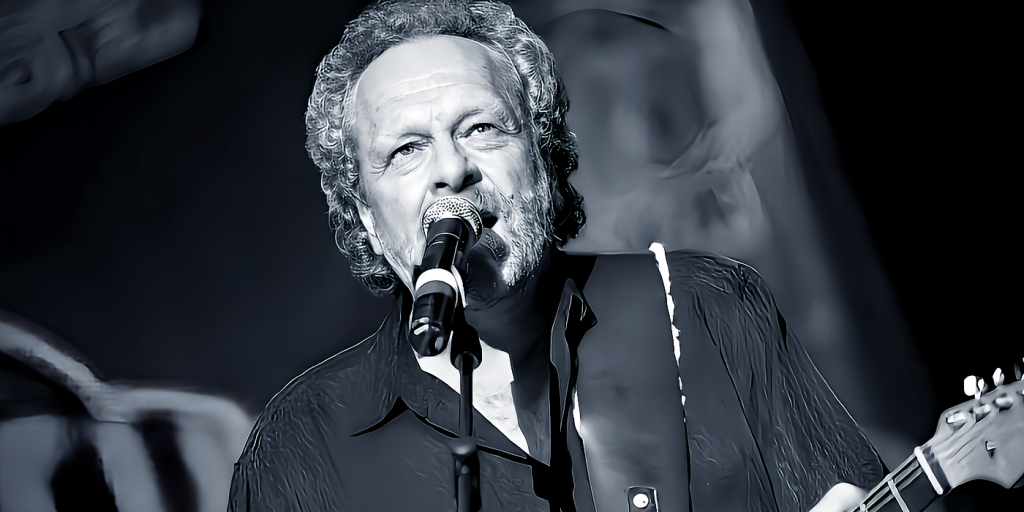The late ’60s saw blues being co-opted by young white music fans for the first time. The pop music hit makers still owned AM radio, but the FM dial now was coming into its own, particularly college radio stations playing postwar electric blues and “underground rock” incorporating urban blues influences. The Grass Roots was a band that was the pop music yin to the blues yang. The group was frequently scoring in the top 40 pop music charts with songs like “Midnight Confessions” and “Let’s Live for Today.”
Dusty Hanvey would eventually become the Grass Roots’ lead guitarist and one of their vocalists in 1984. He’s still with the group today doing “package shows” with other oldies bands, but when the group first formed in the mid-60s, he was doing studio work in L.A. “I was doing commercials for Wrangler Jeans and Campbell Soups. (I was) kind of a guitar work for hire and ended up working through my travels with a bunch of bands from this era, including The Righteous Brothers, The Mamas and Papas, The Turtles, and the Monkees. I was just in that circle. So, once you get out into the circle, and the network goes on and people hear you and see you and meet you, you start getting calls to do other things.”
Whereas the blues bands pride themselves on their live performances, the original Grass Roots touring band other than vocalist Bob Grill was a completely different unit than the one recording their hits. A group of studio musicians known collectively as The Wrecking Crew backed the lead vocalists who then would tour with a completely different backup band.
“The Wrecking Crew was involved in all of these bands including Three Dog Night, Steppenwolf, the Grass Roots, and whatever other ’60s bands,” says Hanvey. “I’m just talking about the ABC/Dunhill bands, now, but anything that came out of that era, the Wrecking Crew was involved – much the same as the Motown bands that recorded all of Stevie Wonder’s stuff back then. They had that little cluster going on back then.”

Six decades later, none of the original members of the Grass Roots is in the current band.
“To keep it authentic like it was recorded we don’t mess with the vocal melodies. We don’t mess with the vocal harmonies. They’re all recreated from back then. Those arrangements are basically the same so that when people hear the song they’re not getting tricked into some new version or some new arrangement of those songs. Our approach to it is to make it authentic, and we do that all the time. (People say) ‘You guys sound like the record, only better.’”
In blues that would be like putting together a band to slavishly copy Howlin’ Wolf’s Chess Records repertoire.
I asked Hanvey how he psyches himself up to capture the essence of the band’s hits. Where does he go when he’s doing a big show sometimes in front of an audience as big as 100,000 people? And how does he exercise his own muse to deliver a song that by his own estimate is better than the original?
“I think it’s because of the quality of the musicians in the band, not to pat myself on the back. We’re all really good players and singers, and so we just stick to the original arrangements vocally and instrumentally and just simply by playing them with the degree of ability we have. There you go. Pow! Done deal.”
Hanvey calls himself a craftsman. “Above all you have to be professional. I’m a craftsman of music. When you get calls to do this, and you know to get the job done, you have to show up and people go, ‘Wow! That’s great!’ And you get another call and another call and another call. So, (it’s about) staying professional and being ready for opportunities.”
Where does he go when he sings a song like “Midnight Confessions”? Does he live the song? Where is his mindset when he’s addressing his audience on a song that’s that iconic? “I know what it means to the audience. A lot of people that come to see us really have moments in their lives that they associate with those songs, and you can see it in them. They’re very enthusiastic and receptive and it takes them back to a time.”
“Let’s Live for Today” was one of the Grass Roots songs that resonated with me in the mid-60s in ways similar to the best blues songs. I was facing the distinct possibility of being caught up in the draft and sent to Vietnam which I eventually was. The lyric “Don’t worry about tomorrow/live for today” seemed to be speaking directly to me. Hanvey says that song has particular significance to so many of us more than half a century after it was a hit. “That resonates almost kind of like an anthem of the Vietnam War. I talk to a lot of veterans out of Vietnam who listened to that song in fox holes and in the firefights over there. That one really hits them.”
Like the blues, golden oldies live on and still resonate with audiences long after they were first released. I asked Hanvey if he thought he would outlive his audience. He laughed. “We’re doing it already. That’s the sad part. We’re already doing it. So, I mean the crowds are so good. We see all ages at the shows. What’s interesting about it is we see a lot of young people. It’s a trendy thing, I guess, to latch onto ’60s music. We just did a show with The Box Tops and The Buckinghams up in Wisconsin three or four days ago at the Crystal Grand Theatre, and there was a four-year-old kid who flew in from Germany to see the show, and we’re his favorite band. It’s a crazy thing.”


